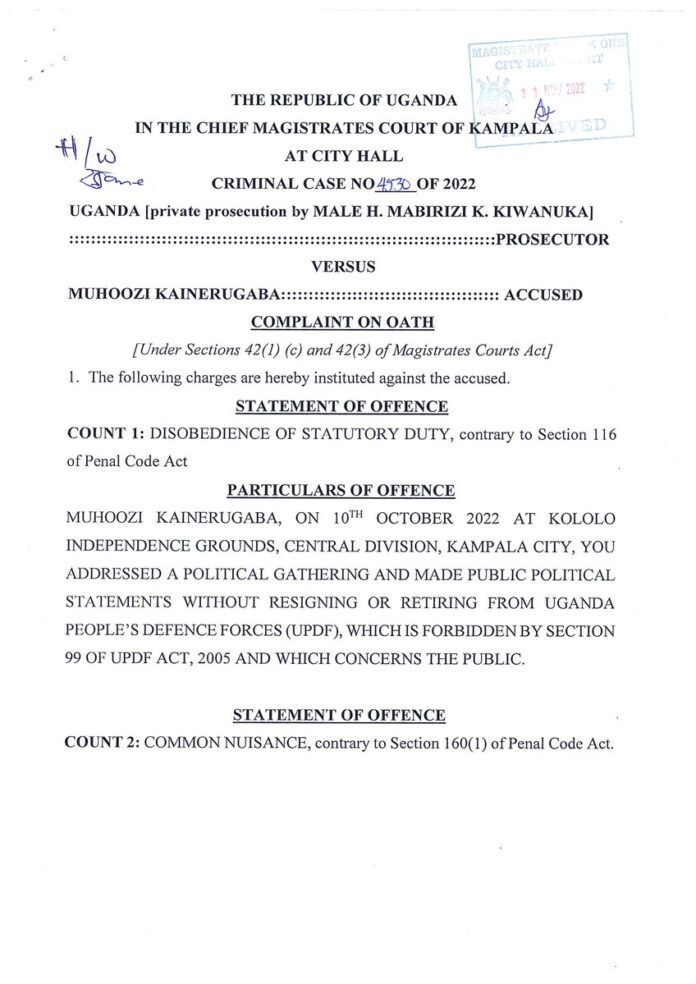
Introduction: Uganda’s political landscape has been marked by ongoing discussions and debates surrounding the role of President Yoweri Museveni’s son, Muhoozi, in political mobilization efforts. As the country’s long-standing leader, President Museveni has been accused by some Ugandans of using taxpayer funds to advance his son’s political career. These allegations have raised concerns among citizens, who question the prospect of transitioning from one generation of leadership to another without a significant break from the past.
Mobilization and Succession Plans: Critics argue that the push for Muhoozi’s involvement in political mobilization, with the support of the ruling party, raises concerns about the potential perpetuation of a dynastic rule in Uganda. They view this as a continuation of the same system that has been in place for decades, and fear that it may undermine the principles of democracy and hinder the emergence of new and diverse leadership.
The Use of Taxpayer Funds: The allocation of taxpayer funds to support Muhoozi’s political activities has sparked further discontent among Ugandans. Many argue that these resources could be better utilized to address pressing social and economic challenges faced by the population, such as healthcare, education, and infrastructure development. The use of public funds for political mobilization purposes raises questions about transparency, accountability, and the equitable distribution of resources.
Concerns Over Democratic Transition: The prospect of a smooth and democratic transition of power remains a concern for many Ugandans. While some argue that a change in leadership is essential for the country’s progress, others worry that a transfer of power from one generation to the next within the same political family may limit opportunities for new ideas, fresh perspectives, and genuine democratic reforms.
The Need for Inclusive Leadership: In order to address these concerns, some Ugandans advocate for a more inclusive approach to leadership, where individuals from diverse backgrounds and experiences are given the opportunity to contribute to the nation’s governance. They stress the importance of nurturing a political environment that encourages a healthy exchange of ideas, promotes meritocracy, and prioritizes the collective well-being of the nation above individual interests.
Citizen Engagement and Democratic Process: The opinions and voices of Ugandan citizens are essential in shaping the future of their country. Engaging in open discussions, participating in peaceful demonstrations, and exercising the right to vote are fundamental elements of a democratic society. By actively participating in the political process, citizens can influence the direction of the nation and ensure that their concerns are heard and addressed.
Conclusion: The ongoing debate surrounding political mobilization and succession plans in Uganda highlights the need for careful consideration of the country’s future leadership. The concerns raised by Ugandans regarding the potential continuation of a dynastic rule and the use of taxpayer funds for political purposes reflect a desire for a more inclusive and democratic political landscape. It is crucial for citizens to engage in constructive dialogue and actively participate in the democratic process to shape the future of their nation.
Ugandans demand an explanation from the current administration as to why Sons Presidents continues to serve as a general in the Army while hosting political rarities. clinton mirrors Amapire writes